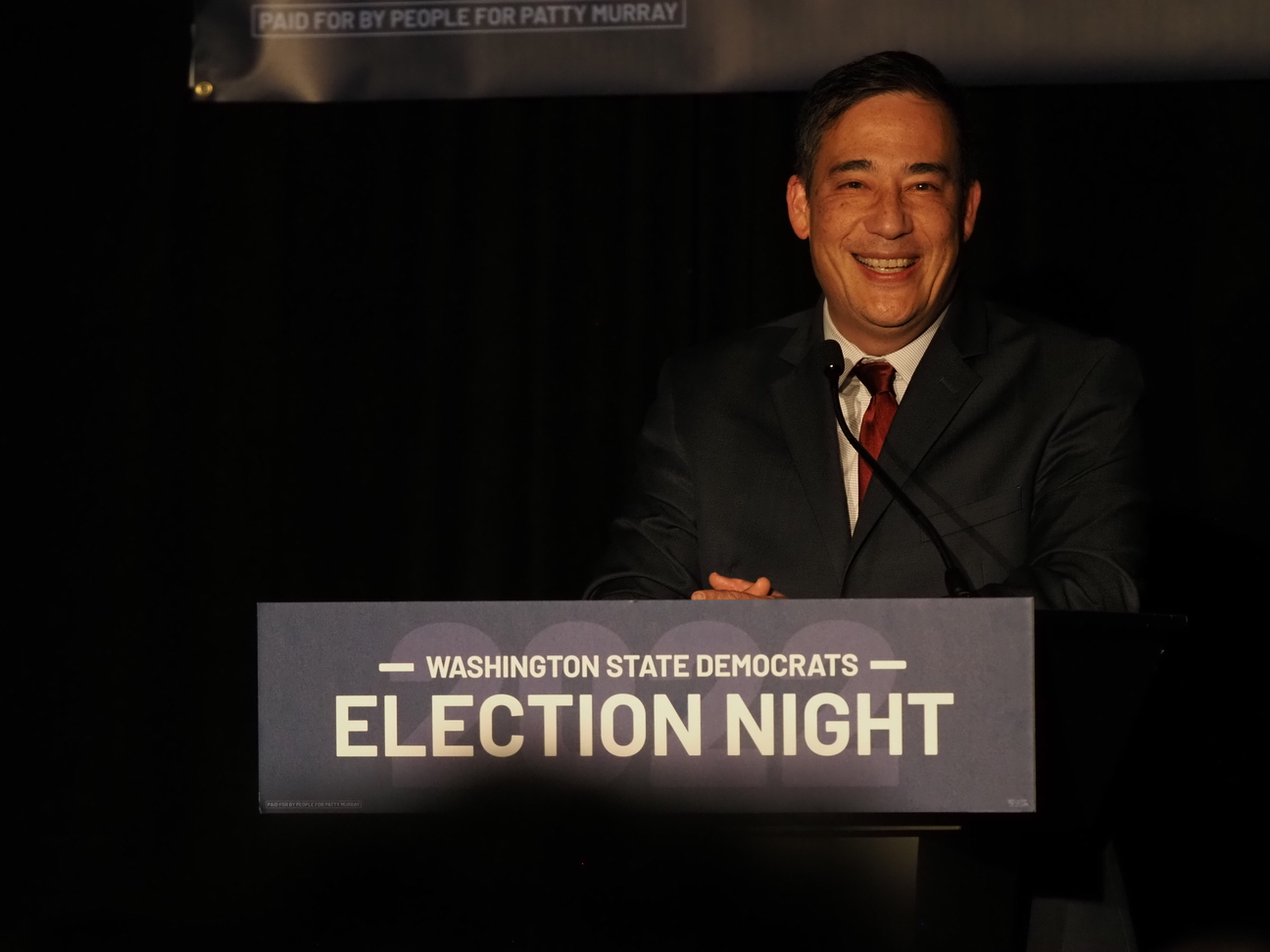An election security bill requested by Washington Secretary of State Steve Hobbs has completed its journey through the legislative process and will now be presented to Governor Jay Inslee for his signature following a successful floor vote in the House of Representatives this evening.
By a vote of 58 to 37, the House voted to adopt Senate Bill 5843, prime sponsored by Senator Joe Nguyen (D‑34th Legislative District: Seattle, Vashon Island). The bill would improve elections security in the following ways, as assessed by the Legislature’s nonpartisan staff:
- Requires every county to install and maintain an intrusion detection system to monitor their network and to disclose certain malicious activity or breaches of security of information technology systems.
- Authorizes the Secretary of State to certify the results of an election if a county canvassing board refuses to certify the results of the election without cause.
- Establishes violations and penalties related to election interference, including prohibited interference by election observers, destruction of voted ballots and certain election supplies and materials, interference with the operation of a voting center, and unauthorized access to election administration locations and systems.
The need for the first provision mentioned above was triggered by the refusal of several counties controlled by right wing county commissions to keep in place what are known as “Albert sensors” — essential tools for detecting intrusions in elections systems. Here’s some background from The Spokesman-Review:
A week before Election Day, state elections officials say they haven’t been able to persuade three Washington counties to install a security device that monitors county network traffic for threats.
Almost every county in the Evergreen State uses an internet security system called an Albert sensor, an artificially intelligent tool that monitors network traffic for suspicious activity. According to the Washington Office of the Secretary of State, 36 out of 39 counties had an operating Albert sensor installed as of Tuesday. Grant, Ferry and Lincoln counties do not, the agency reported.
Under state law, counties have legal authority to make decisions about their own internet security. That job most often falls into the hands of county commissioners. State Secretary Steve Hobbs has repeatedly expressed concern about the counties he says have ignored state and federal advice to install Albert sensors.
Hobbs told The Spokesman-Review in an interview that conspiracy theories and disinformation began to circulate around the state about the security devices in 2021. Albert sensors are the Homeland Security standard, the secretary added.
“Most states have Albert sensors,” Hobbs said. “The Secretary of State’s Office prefers the Albert sensor to alternate security.”
Hobbs told the Spokesman’s Ellen Dennis that he was prepared to introduce legislation to require Grant, Ferry, and Lincoln counties to comply:
“It’s getting to the point now where I might have to introduce legislation for minimum standards of security,” Hobbs said. “… I know it’s political expediency on their part to be able to say, ‘We’ve got something, and it’s not the Albert sensor.’ Because right now misinformation is directed at the Albert sensor.”
True to his word, Hobbs followed up and worked with Senator Nguyen to introduce SB 5843, which was cosponsored by Republican Matt Boehnke.
Importantly, the bill now explicitly makes it a felony to “provide unauthorized access to a person or entity to physical locations or electronic or physical access to election software or hardware used in any element of conduct of an election.” Given the behavior we saw in the wake of the 2020 presidential election from election deniers and their enablers around the country, this is a welcome safeguard, and it will take effect in time for this year’s presidential election.
The roll call in the House was as follows:
Roll Call
SB 5843
Election security breaches
3rd Reading & Final Passage
2/27/2024Yeas: 58; Nays: 37; Excused: 3
Voting Yea: Representatives Alvarado, Bateman, Berg, Bergquist, Berry, Bronoske, Callan, Chapman, Chopp, Cortes, Davis, Doglio, Donaghy, Duerr, Entenman, Farivar, Fey, Fitzgibbon, Fosse, Goodman, Gregerson, Hackney, Kloba, Leavitt, Lekanoff, Macri, Mena, Morgan, Nance, Ormsby, Ortiz-Self, Orwall, Paul, Peterson, Pollet, Ramel, Ramos, Reed, Reeves, Riccelli, Rule, Ryu, Santos, Senn, Shavers, Simmons, Slatter, Springer, Stearns, Stonier, Street, Taylor, Thai, Tharinger, Timmons, Walen, Wylie, Jinkins
Voting Nay: Representatives Abbarno, Barkis, Barnard, Caldier, Chambers, Cheney, Christian, Connors, Couture, Dent, Dye, Eslick, Goehner, Graham, Griffey, Harris, Hutchins, Jacobsen, Klicker, Kretz, Low, Maycumber, McClintock, McEntire, Mosbrucker, Orcutt, Robertson, Rude, Sandlin, Schmick, Schmidt, Steele, Stokesbary, Walsh, Waters, Wilcox, Ybarra
Excused: Representatives Chandler, Corry, Volz
Republicans stuck together in opposition to bill, resulting in its passage along party lines (three Republicans missed the vote). In the Senate, the bill received a mere three nay votes, as you can see from the February 2nd roll call:
Roll Call
SB 5843
Election security breaches
3rd Reading & Final Passage
2/2/2024Yeas: 46; Nays: 3
Voting Yea: Senators Billig, Boehnke, Braun, Cleveland, Conway, Dhingra, Dozier, Fortunato, Frame, Gildon, Hansen, Hasegawa, Hawkins, Holy, Hunt, Kauffman, Keiser, King, Kuderer, Liias, Lovelett, Lovick, MacEwen, McCune, Mullet, Muzzall, Nguyen, Nobles, Pedersen, Randall, Rivers, Robinson, Saldaña, Salomon, Shewmake, Stanford, Torres, Trudeau, Valdez, Van De Wege, Wagoner, Warnick, Wellman, Wilson, C., Wilson, J., Wilson, L.
Voting Nay: Senators Padden, Schoesler, Short
House Republicans made several efforts to amend the bill, which were rejected.
One amendment would have provided that intrusion detection system providers
could be held liable for any malicious activity directly attributable to the intrusion detection system. Another would have bizarrely required that an intrusion detection system not operate behind the firewall of a county auditor.
Thankfully, the various schemes to weaken the bill went nowhere. Now we’re on the verge of having some important new safeguards added to our state elections code at a critical juncture. Congratulations to Secretary of State Steve Hobbs, Senator Nguyen, and all who worked on this timely legislation.


I am so grateful be living and voting in Washington State.